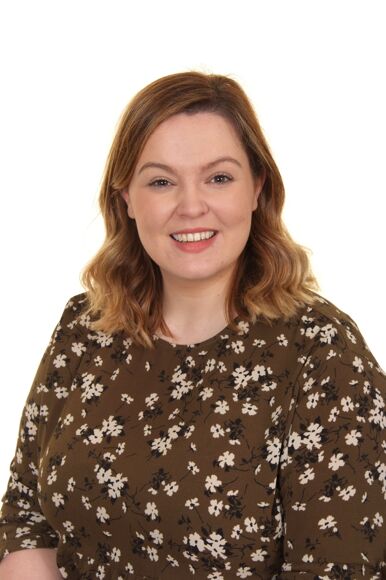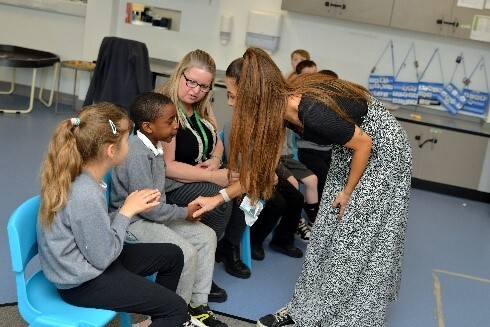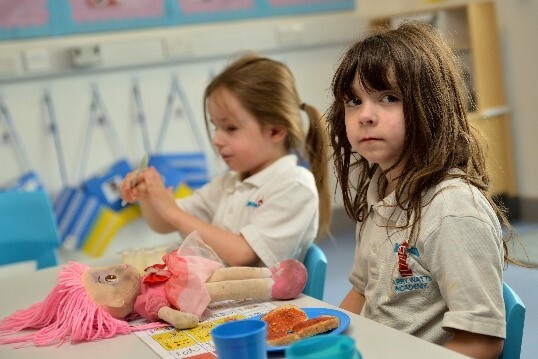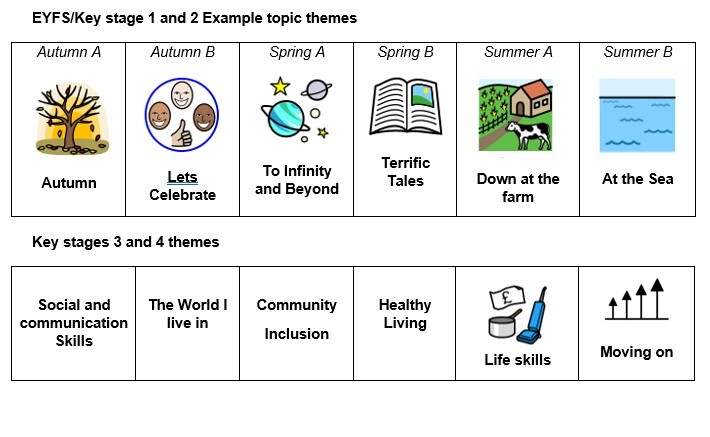- Home
- Curriculum
- Curriculum Overview
- Engage Pathway
Engage Pathway
Pupils following the Engage Pathway are based at the Redhouse site of Harry Watts Academy, the Pathway Lead is Jodie Bainbridge.

Acting Pathway Lead: Amber Nicholls (Maternity Cover for Jodie)

In line with the other pathways in HWA our curriculum is based on individual pupil EHCP targets and we have a commitment to personalise the curriculum to the unique qualities and needs of each pupil, and a teaching and learning approach that is flexible and informed by specialist knowledge of the strengths and difficulties associated with Autism Spectrum Condition (ASC) in general. Central to this is the health and well-being of our pupil community; we believe that it is of paramount importance to the physical, mental and emotional health of our pupils that individuals feel they are making progress and attaining at an appropriate level.

The focus of the Engage Pathway, is to create inquisitive and engaged learners, through a range of motivating and exciting learning and life experiences. The Engage Pathway is based upon the principles of The Engagement Model and The Early Years Foundation Stage curriculum. The Engage Pathway allows children and young people who are not yet engaged in subject specific study to access stimuli and activities on a similar theme as their peers, whilst focusing on their cognitive, physical, social, and emotional development – the foundations for all learning.

Our Engage pathway is:
- for all learners (primary and secondary) who are working on a pre-formal curriculum (below the pre key stage standards) and benefit from a multi-sensory approach with a focus on early communication skills and the engagement model.
- planned by class teachers.
- sequenced according to a scheme of storybooks, linked to themes, to expose students to a rich variety of stimuli and provide opportunities for lateral progress and over-learning (see topic maps).
- delivered through a blend of specialist interventions and engaging and motivating experiences, adapted and enriched through the story and theme.
- assessed using individual EHCP targets and a bespoke combination of frameworks chosen to best reflect the progress of each learner, including ELG, Bsquared engagement steps, Harry Watts communication tracker, phonics assessments and SCERTS.
All pupils will be assessed annually to ensure they have the opportunity to progress within their pathway. From year 3 pupils may progress to the explore pathway if appropriate.
- We plan to be accredited in Key stage 4 through AQA English and Maths unit awards. Bronze and Silver Duke of Edinburgh Awards.
Topic
Topics in Key Stages 1-3 provide a wide range of exciting stimuli to develop all 4 EHCP areas and develop curiosity, awareness of the wider world, and the fundamentals of listening and attention. Topics may be revisited on a cyclical basis within a key stage, using a range of different stories to provide opportunities for broadening familiarity within a topic area. Topics in Key Stage 3 and 4 will build on these foundations and combine topic themes with a focus on skills for transition and the preparation for adulthood themes. See our example timetables and half-termly topic maps.

All activities in our timetable are designed to help the children in the Engage pathway to meet their individual EHCP targets.
The activities focus on the following key areas, with many activities developing a number of these areas simultaneously:
- Cognition and Learning
- Social, Emotional & Mental Health
- Sensory, Physical Development & Life Skills
- Communication & Interaction
As well as this, in order to ensure we provide our learners with a well-rounded curriculum and to create exciting, engaging learning opportunities, Creativity and an awareness of ‘Our World’ feeds through many of the activities planned each week.
Below is a rationale, explaining some of the sessions incorporated into the engage timetable and why they are being used in the teaching and learning in the engage pathway.
Intensive Interaction - this intervention will be used at many points throughout the day and the philosophy behind it underpins much of our teaching and learning in Hedgehogs class. The approach helps to develop early communication skills through the adult ‘joining’ the student in communication and play. It works on developing aspects of communication including eye contact, turn taking, vocalisations and conversation, as the adult joins and follows the child’s lead. This helps to develop the idea that communication and interaction with others is enjoyable and rewarding.
Circle Time - allows us to practise our social skills and group communication. It follows the same format each day to allow children to begin to anticipate familiar routines in the school day. We sing a ‘hello’ song to each child, we have a movement break to work on gross motor skills and we complete a ‘dough disco’ song to strengthen coordination, muscle development in the hands and fine motor skills, whilst providing sensory input at the same time. Circle time is also a chance for the class to explore and understand their emotions by choosing how they feel and communicating why this is.
Snack, Lunch & Personal Care - communication, social interaction and life skills are the key focus during these times. Children are encouraged to request their preferred snack item and sit together to share meal times. During personal care, children are supported to become as independent as possible with dressing, using the toilet and washing hands.
Outdoor Learning - children’s physical wellbeing is developed as they are encouraged to be active and adventurous in their play. Children are able to self-regulate their emotions and sensory needs through the use of the outdoor sensory circuit and the equipment in the adventure playground. As well as this there are many opportunities to work on communication and social skills as the children share these activities with friends and supporting adults.
Attention Building - Children follow the Attention Autism programme to stage 2 or 3, in order to build on group attention, turn taking, communication and social interaction.
Relaxation, Storytime and Music - an opportunity for calming activities at the end of the day, focussed on a sensory massage story, music, yoga and reflecting on the achievements of each child that day.
Sensory Story - each half term, we will focus on a different story. Sensory story allows us to bring these books to life and enhance the children’s understanding of them by adding sensory elements to each section of the story. By repeating these stories each week, children can fully engage with them and can begin to anticipate what will come next, or remember the words to the repeated phrases.
Squiggle Whilst You Wiggle - this fun activity uses dance, music and large movements to help children learn the skills needed in order to write. We practise forming circles, semi circles, vertical and horizontal lines whilst dancing to their favourite music and mark making in different sensory materials. This develops the fine and gross motor skills which are required for writing.
Cooking/Touch & Taste - children develop their life skills and mathematical understanding when following a simple visual recipe to weigh and measure ingredients to make pizzas, fruit salads, biscuits and other foods. In Touch and Taste, they are introduced to a range of different tastes and textures and are encouraged to explore the ingredients with all of their senses and taste them when they are ready. The emphasis is on sensory exploration, singing and having fun, helping them to enjoy experiencing a wide range of different foods.
Identiplay - social skills, group attention and communication are the main focus in this intervention, where children practice playing in parallel with an adult. Turn taking, development of vocabulary, imaginative play and enjoyment of playing alongside another person are all skills that are built upon.
Creative Arts - these sessions cover music, dance, role play/drama, collage, painting and drawing. The activities encourage communication and vocabulary development, group attention, emotional regulation and body awareness. They often have a strong sensory element. They are also used to meet the children’s cognition and learning targets through, for example, number songs and through linking the activity to the story of the term.
PE, movement - these activities all work on the children’s physical and sensory targets on their EHCP whilst, as always, providing many opportunities for communication, social skills and emotional regulation.
Tacpac - a sensory communication intervention which combines the senses of touch, sound and sight. Children listen to a number of specially composed pieces of music, as they see and feel different textured materials on their bodies, delivered rhythmically in time to the music. This helps with the children’s sensory alignment and body awareness.
Messy Maths - the main focus of this session is to work on the children’s cognition and learning targets, by developing their understanding of number, shape and measure. This is done through sensory play and active learning and is specific to each individual child’s EHCP target.
Specialist Rooms - the sensory rooms and soft play room allow opportunities for self regulation of emotions, sensory integration, physical development and communication. We often use time in these rooms to communicate by choosing particular pieces of equipment, play group games, practise intensive interaction and sing songs or tell stories.
Social Games - an opportunity for us to work on our social skills and interactions with peers and adults. The children communicate with one another to make choices about games, take turns, share toys, express likes/dislikes and enjoy playing socially in a group. These games are supported by adults who will also provide games that will help to work on the children’s cognition and learning targets (e.g. number puzzles, hide and seek using positional language, rhyming pairs)
Outdoor Learning/ Forest School - outdoor learning following the children’s lead and interest, which provides many opportunities to work on individual EHCP targets. Physical wellbeing is strengthened through climbing, swinging, balancing and jumping. The sessions encourage problem solving, risk taking, teamwork and imaginative play. Children practise life skills such as building shelters, following directions and developing their independence. Cognition and learning is developed by matching the theme of the session to the termly story, and an awareness of the environment and our world comes through engaging positively with nature. This all gives rise to numerous opportunities for communication and interaction with adults and peers.
Clever Fingers - develops children’s fine motor skills through motivating and highly engaging activities which use items such as pegs, scissors, beads, string, tongs and pom poms.
News from our Engage Classes:
Documents
| Page Downloads |
|---|
| Engage KS1 and KS2 Timetable Example |
